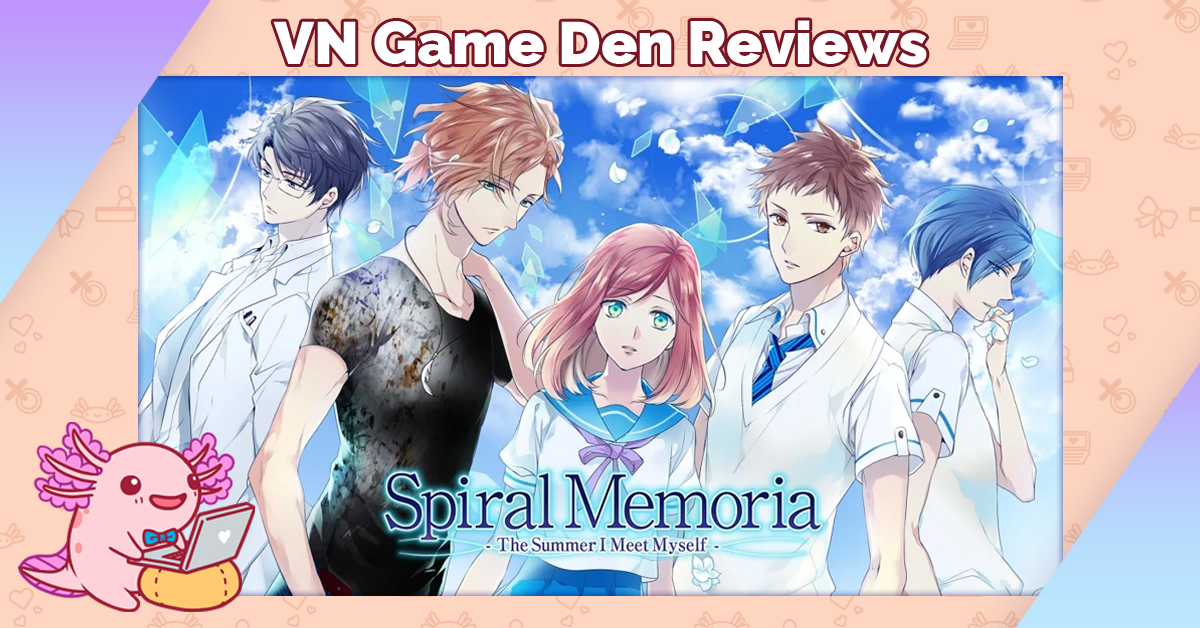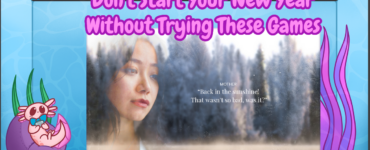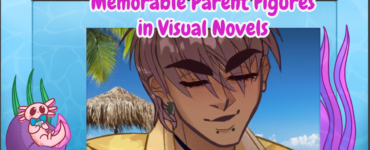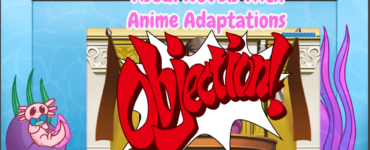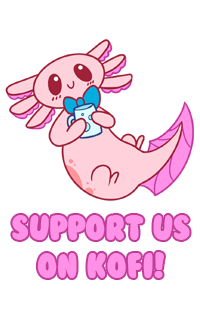VN Game Den was provided with a review code for Spiral Memoria.
Spiral Memoria -The Summer I Meet Myself- is an otome visual novel about a girl named Miku Asanaga who has no memory of her past beyond the last two years. All she knows is that she was in an accident that caused her to lose her memories. Before being released on the Nintendo Switch, Spiral Memoria was available in Japan as a mobile game where you paid for each route separately. Although the Switch version is a single release, the structure remains. A prologue is viewable from the main menu to introduce you briefly to each potential love interest, and then the “New Game” option has you pick which route you want to play through.
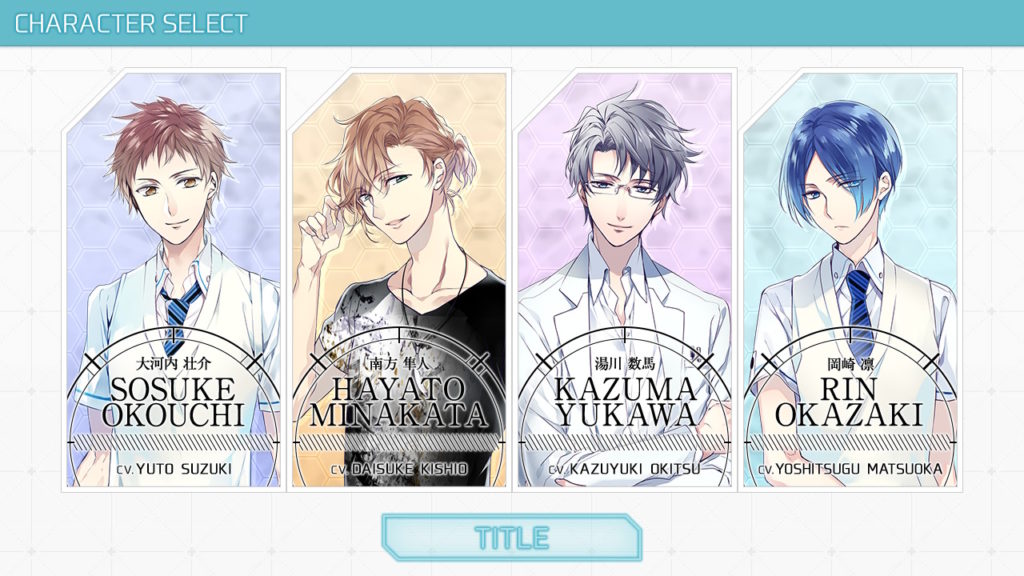
Whichever character whose route you pick will be the primary focus of that playthrough, although some of the love interests appear in other routes in minor roles. These four characters are the only ones who appear on the screen as sprites, although the main character’s face is also displayed alongside her dialogue when she speaks. Every character aside from the protagonist has full Japanese voice acting, including characters without sprites, and the overall presentation is quite nice.
Unfortunately, the English translation has some issues—nothing that makes it unreadable, but there are occasional spelling and grammar mistakes, a few out-of-place words, and phrasing choices that just make the sentences sound awkward. For players who can read Japanese, the language can be changed from the main menu.
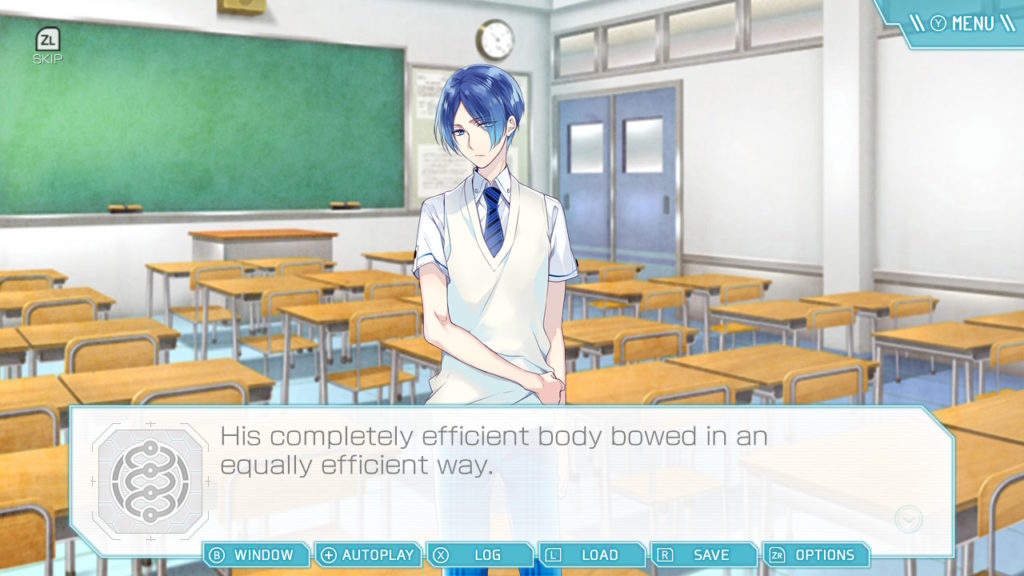
As I played each route, I couldn’t help but think Spiral Memoria would be a much better experience if it was a single, cohesive story with choices branching off into the separate character routes. It feels less like multiple routes of a single story and more like four different versions of a story. Sosuke’s route begins with Miku being distressed by a school assignment where she’ll need to write about her past. This never comes up in the others, even though they’re all set during the same period of time. Hayato recognizes Miku immediately in other characters’ routes, but not when they meet in his own. Miku doesn’t know who Dr. Yukawa is in most routes, but in his she visits him regularly. And Rin never appears in other routes at all, even though the circumstances are no different.
Meanwhile, since the love interests don’t really have their own plots, most of the routes lose any sense of mystery as soon as you’ve finished one. The central mystery surrounding Miku and her lost past is interesting the first time through, but after that, you already know what the revelations will be. The major exception is Rin’s route, since there are mysteries surrounding him as well. That puts the burden of carrying the story in subsequent routes on the love interests themselves. Each route has a handful of choices: minor ones that only change dialogue or let you see new CGs, a choice that leads to that route’s bad ending, and a choice near the end that splits off into the route’s normal ending or true ending.
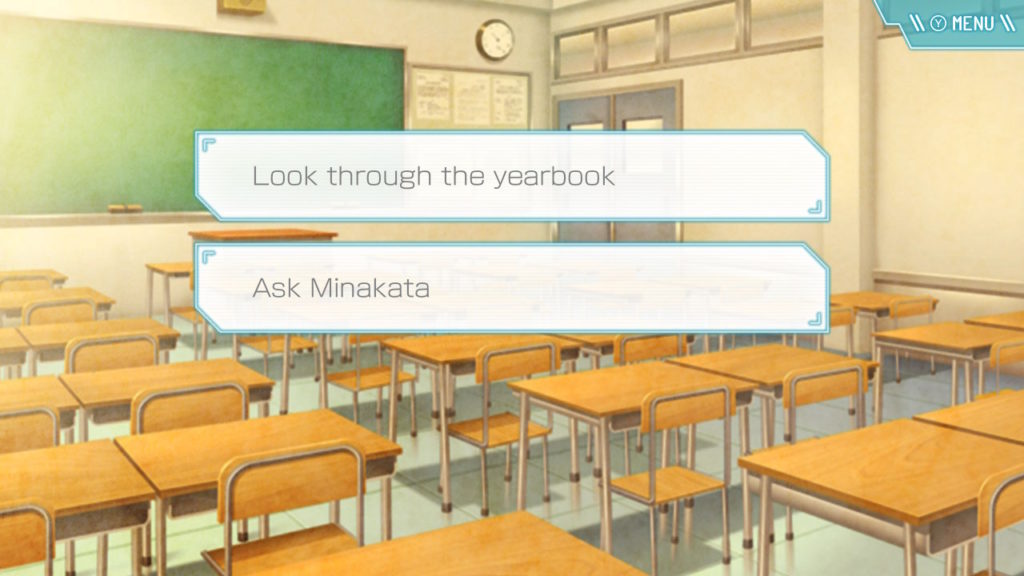
There are some logical issues with the story as well, with the biggest one being that many of the conflicts left me wondering how Miku lived with her amnesia for two years without such things happening before.
Fortunately, the love interests themselves are interesting enough to lead to some nice moments. Hayato and Rin are the best in this regard, as they each have stories beyond simply helping the protagonist. Rin in particular has a route that feels more fully-developed than the others. On the other hand, the routes are so short—with each route taking under two hours to complete—that they feel a little rushed. Even when the love interest is likable, it’s hard to really believe the romance between him and Miku when you’ve spent so little time watching their story develop.
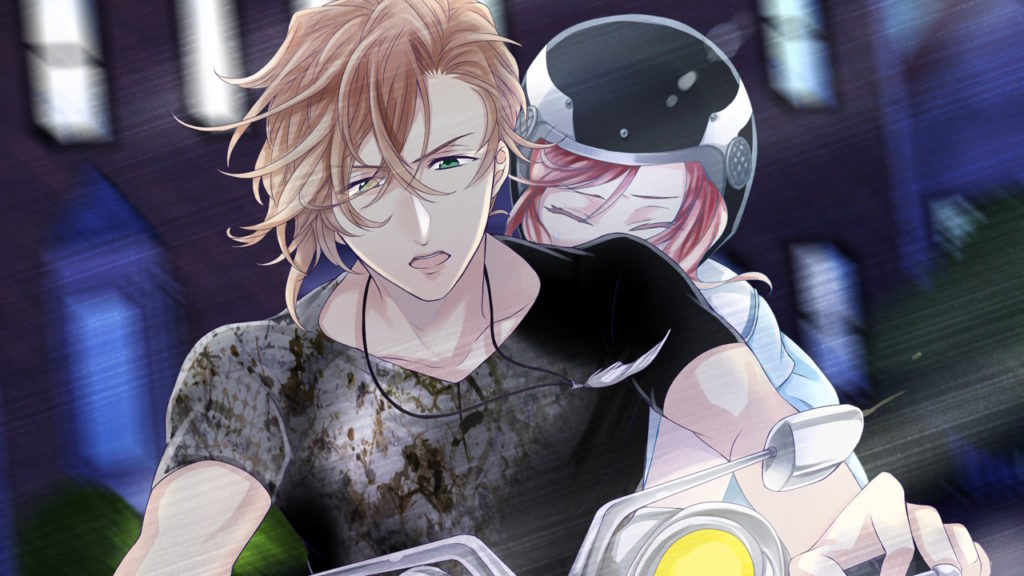
That carries over into the endings, too. The main story sets up a dangerous situation for Miku and your chosen love interest, but only one of the four routes really provides a sense of closure and resolution. The other three, even in their true endings, left me wondering how they could possibly end the story there.
Despite some good moments and an interesting premise, it’s tough to recommend Spiral Memoria -The Summer I Meet Myself-. However, if you do want to try it, you can buy it from the Nintendo eShop.

